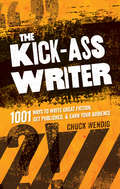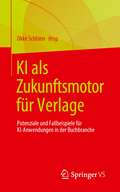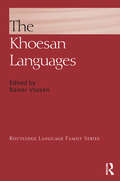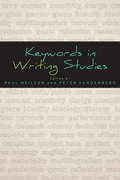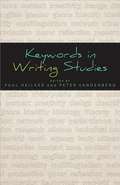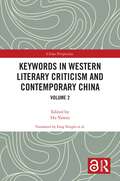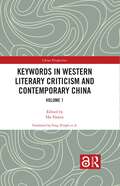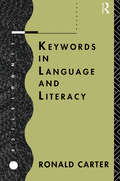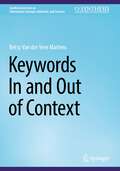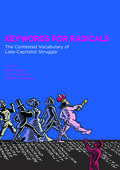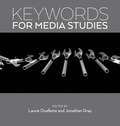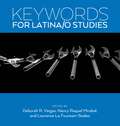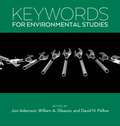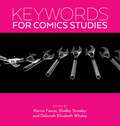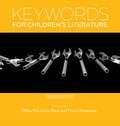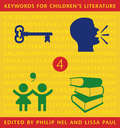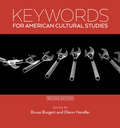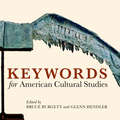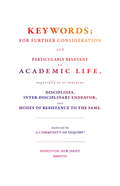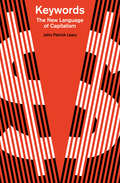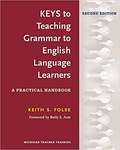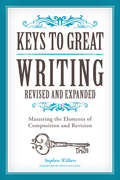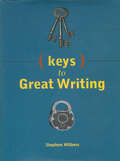- Table View
- List View
The Kick-Ass Writer: 1001 Ways to Write Great Fiction, Get Published, and Earn Your Audience
by Chuck WendigThe journey to become a successful writer is long, fraught with peril, and filled with difficult questions: How do i write dialogue? How do I build suspense? What should I know about query letters? Where do I start? The best way to answer these questions is to ditch your uncertainty and transform yourself into a KICK-ASS writer. Chuck Wendig will show you how with an explosive broadside of gritty advice that will destroy your fears, clear the path, and help you find your voice, your story, and your audience. You'll explore the fundamentals of writing, learn how to obtain publication, and master the skills you need to build an army of dedicated fans. No task is too large or small for the kick-ass writer. With his trademark acerbic wit and gut-punch humor, Wendig will explain: How to build suspense, craft characters, and defeat writer's block. How to write a scene, an ending--even a sentence. Blogging techniques, social media skills, and crowdfunding. How to write a query letter, talk to agents, and deal with failure--and success! Whether you're just starting out or you need one more push to get you over the top, two things are certain--a kick-ass writer never quits, and Chuck Wendig won't let you down in this high-octane guide to becoming the writer you were born to be!
KI als Zukunftsmotor für Verlage: Potenziale und Fallbeispiele für KI-Anwendungen in der Buchbranche
by Okke SchlüterGenerative KI ist ein Game Changer für Verlage. Wie aber sollten Verlage darauf reagieren? Da in der Publishing-Branche Daten eine wichtige Rolle spielen, können KI-Technologien auch hier wertvolle Beiträge leisten. Diese Innovationen sichern gleichzeitig die Zukunft der Verlagsbranche gegenüber globalen Tech-Konzernen ab, die selbst Publishing anbieten. Ziel des Bandes ist es daher, über konkrete Potenziale in Verlagen zu sprechen, seien es z. B. Manuskriptarbeit, Marketingkommunikation oder Nachauflagen. Mit einer Einführung in KI, drei konkreten Fallbeispielen und einer Potenzialanalyse zu ChatGPT.
The Khoesan Languages (Routledge Language Family Series)
by Rainer VossenThe Routledge Language Family series is aimed at undergraduates and postgraduates of linguistics and language, and those with an interest in historical linguistics, linguistic anthropology and language development. According to a widely accepted hypothesis, the Khoesan languages represent the smallest of the four language phyla in Africa, geographically distributed mainly in Botswana and Namibia. Today, only 30 or so Khoesan languages may still exist, with about 300,000 native speakers. In other words, most Khoesan languages were already extinct before a sound scholarly interest in them could begin to develop. Drawing together a distinguished group of international experts, with much of the material taken from data collected by the authors’ own field work, this volume presents descriptive, typological, historical-comparative and sociolinguistic material on Khoesan. The Khoesan Languages contains eight sections: an introduction, an overview of genetic relationships, a typological survey and profile of Khoesan, four chapters covering core linguistic areas of Khoesan phonetics and phonology, tonology, morphology and syntax, and a final chapter tackling major issues in Khoesan sociolinguistics, as well as discussions of language contact. Comprehensive and scholarly, yet also lucid in its coverage of a broad range of languages, dialects and sub-groups, this unprecedented and original work represents the current state of Khoesan linguistics.
Khe I Kakarampundu! (drama): UBC contracted
by N. J. MunyembaneHeyi bugu I sumbedza khudano vhukati ha matshilel a tshikale na a musalauno. Khosi Vho-Maanda a vha tevheli ndila dza tshikale, vha hana u diisa ngoma dza vhatannga na vhasidzana, vha dovha vha hana u mala vhafumakazi vhanzhi. Vha tevhedza matshilele maswa ngauri vha dzia matshilele a tshikale sa a si na mushumo, naho hu na vhathu vhane vha kometshedza u tshila tshikale.
Khe I Kakarampundu! (drama): UBC uncontracted
by N. J. MunyembaneHeyi bugu I sumbedza khudano vhukati ha matshilel a tshikale na a musalauno. Khosi Vho-Maanda a vha tevheli ndila dza tshikale, vha hana u diisa ngoma dza vhatannga na vhasidzana, vha dovha vha hana u mala vhafumakazi vhanzhi. Vha tevhedza matshilele maswa ngauri vha dzia matshilele a tshikale sa a si na mushumo, naho hu na vhathu vhane vha kometshedza u tshila tshikale.
Keywords in Writing Studies
by Paul Heilker Peter VandenbergKeywords in Writing Studies is an exploration of the principal ideas and ideals of an emerging academic field as they are constituted by its specialized vocabulary. A sequel to the 1996 work Keywords in Composition Studies, this new volume traces the evolution of the field’s lexicon, taking into account the wide variety of theoretical, educational, professional, and institutional developments that have redefined it over the past two decades. Contributors address the development, transformation, and interconnections among thirty-six of the most critical terms that make up writing studies. Looking beyond basic definitions or explanations, they explore the multiple layers of meaning within the terms that writing scholars currently use, exchange, and question. Each term featured is a part of the general disciplinary parlance, and each is a highly contested focal point of significant debates about matters of power, identity, and values. Each essay begins with the assumption that its central term is important precisely because its meaning is open and multiplex. Keywords in Writing Studies reveals how the key concepts in the field are used and even challenged, rather than advocating particular usages and the particular vision of the field that they imply. The volume will be of great interest to both graduate students and established scholars.
Keywords in Writing Studies
by John Vandenbergh Paul HeilkerKeywords in Writing Studies is an exploration of the principal ideas and ideals of an emerging academic field as they are constituted by its specialized vocabulary. A sequel to the 1996 work Keywords in Composition Studies, this new volume traces the evolution of the field's lexicon, taking into account the wide variety of theoretical, educational, professional, and institutional developments that have redefined it over the past two decades.Contributors address the development, transformation, and interconnections among thirty-six of the most critical terms that make up writing studies. Looking beyond basic definitions or explanations, they explore the multiple layers of meaning within the terms that writing scholars currently use, exchange, and question. Each term featured is a part of the general disciplinary parlance, and each is a highly contested focal point of significant debates about matters of power, identity, and values. Each essay begins with the assumption that its central term is important precisely because its meaning is open and multiplex.Keywords in Writing Studies reveals how the key concepts in the field are used and even challenged, rather than advocating particular usages and the particular vision of the field that they imply. The volume will be of great interest to both graduate students and established scholars.
Keywords in Western Literary Criticism and Contemporary China: Volume 2 (China Perspectives)
by Hu YaminSince the reform and opening up of China in 1978, Western literary criticism has begun to flourish and gain in popularity within the country’s academic literature community. These two volumes meticulously select and examine nine of the most influential keywords from Western literary theory while identifying the intricate historical sources of these terms and analyzing their relevance to other disciplines and ideas. The result shows how these words function as heterogeneous cultural contexts in the complexity of experience but also how they function within the context of Chinese culture as well as Chinese literature and criticism. In this volume, the editors focus on metaphor, the other, ideology and the body from the perspectives of etymology, documentation, meanings and other core factors. Students of literature and languages, and especially Chinese literature, will benefit from this two-volume set.
Keywords in Western Literary Criticism and Contemporary China: Volume 1 (China Perspectives)
by Hu YaminSince the reform and opening up of China in 1978, Western literary criticism has begun to flourish and gain in popularity within the country’s academic literature community. These two volumes meticulously select and examine nine of the most influential keywords from Western literary theory while identifying the intricate historical sources of these terms and analyzing their relevance to other disciplines and ideas. The result shows how these words function as heterogeneous cultural contexts in the complexity of experience but also how they function within the context of Chinese culture as well as Chinese literature and criticism. In this volume, the editors focus on discourse, text, narrative, literariness and irony from the perspectives of etymology, documentation, meanings and other core factors. Students of literature and languages, and especially Chinese literature, will benefit from this two-volume set.
Keywords in Language and Literacy
by Ronald CarterJust what is Standard English? Is it correct English? Should grammar be taught?The answers to such questions invariably provoke controversy. In this handy A to Z guide to language and literacy, Ronald Carter unpicks the meaning of key terms like `proper English', `real books', `text', and `discourse', and the ways in which concepts are used - and abused - by teachers, politicians, linguists, journalists and employers.Each concise definition is cross-referenced, and supported by extensive examples and by references to further reading. Designed as a dictionary, but possessing an encyclopedic range, Keywords in Language and Literacy, provides an invaluable guide to the debates surrounding language and literacy. An indispensible book for all teachers and students of language and education, and anyone interested in the place of language in schools.
Keywords In and Out of Context (Synthesis Lectures on Information Concepts, Retrieval, and Services)
by Betsy Van MartensThis book explores the rich history of the keyword from its earliest manifestations (long before it appeared anywhere in Google Trends or library cataloging textbooks) in order to illustrate its implicit and explicit mediation of human cognition and communication processes. The author covers the concept of the keyword from its deictic origins in primate and proto-speech communities, through its development within oral traditions, to its initial appearances in numerous graphical forms and its workings over time within a variety of indexing traditions and technologies. The book follows the history all the way to its role in search engine optimization and social media strategies and its potential as an element in the slowly emerging semantic web, as well as in multiple voice search applications. The author synthesizes different perspectives on the significance of this often-invisible intermediary, both in and out of the library and information science context, helping readers to understand how it has come to be so embedded in our daily life.This book: Provides a thorough history of the keyword, from primate and proto-speech communities to current timesExplains how the concept of the keyword relates to human cognition and communication processesHighlights the applications of the keyword, both in and out of the library and information science context
Keywords for Radicals: The Contested Vocabulary of Late-Capitalist Struggle
by Kelly Fritsch Clare O'Connor Joy James Silvia Federici A. K. Thompson"An extraordinary volume that provides nothing less than a detailed cognitive mapping of the terrain for everyone who wants to engage in radical politics. "—Slavoj Žižek, author of Living in the End Times "From its thought-provoking Introduction though its energizing accounts of the tensions underlying our most prized concepts, Keywords for Radicals will be indispensable to any scholar or activist who is serious about critique and change. "—Stephen Duncombe, editor of Cultural Resistance Reader In Keywords (1976), Raymond Williams devised a "vocabulary" that reflected the vast social transformations of the post-war period. He revealed how these transformations could be grasped by investigating changes in word usage and meaning. Keywords for Radicals—part homage, part development—asks: What vocabulary might illuminate the social transformations marking our own contested present? How do these words define the imaginary of today's radical left? With insights from dozens of scholars and troublemakers, Keywords for Radicals explores the words that shape our political landscape. Each entry highlights a term's contested variations, traces its evolving usage, and speculates about what its historical mutations can tell us. More than a glossary, this is a crucial study of the power of language and the social contradictions hidden within it. Contributors include Patrick Bond, Silvia Federici, John Bellamy Foster, Joy James, Ilan Pappé, Justin Podur, Nina Power, Mab Segrest, and more. Kelly Fritsch is a Banting Postdoctoral Fellow in Women's and Gender Studies at the University of Toronto. Clare O'Connor is a doctoral student in Communication at the University of Southern California. A. K. Thompson teaches social theory at Fordham University in New York.
Keywords for Media Studies (Keywords #5)
by Jonathan Gray Laurie OuelletteThe Essential vocabulary of Media Studies Keywords for Media Studies introduces and aims to advance the field of critical media studies by tracing, defining, and problematizing its established and emergent terminology. The book historicizes thinking about media and society, whether that means noting a long history of “new media,” or tracing how understandings of media “power” vary across time periods and knowledge formations. Bringing together an impressive group of established scholars from television studies, film studies, sound studies, games studies, and more, each of the 65 essays in the volume focuses on a critical concept, from “fan” to “industry,” and “celebrity” to “surveillance.” Keywords for Media Studies is an essential tool that introduces key terms, research traditions, debates, and their histories, and offers a sense of the new frontiers and questions emerging in the field of media studies.
Keywords for Latina/o Studies (Keywords #6)
by Nancy Raquel Mirabal Deborah R. Vargas Lawrence La Fountain-StokesA vocabulary of Latina/o studies. Keywords for Latina/o Studies is a generative text that enhances the ongoing dialogue within a rapidly growing and changing field. The keywords included in this collection represent established and emergent terms, categories, and concepts that undergird Latina/o studies; they delineate the shifting contours of a field best thought of as an intellectual imaginary and experiential project of social and cultural identities within the U.S. academy. Bringing together sixty-three essays, from humanists, historians, anthropologists, sociologists, among others, each focused on a single term, the volume reveals the broad range of the field while also illuminating the tensions and contestations surrounding issues of language, politics, and histories of colonization, specific to this area of study. From “borderlands” to “migration,” from “citizenship” to “mestizaje,” this accessible volume will be informative for those who are new to Latina/o studies, providing them with a mapping of the current debates and a trajectory of the development of the field, as well as being a valuable resource for scholars to expand their knowledge and critical engagement with the dynamic transformations in the field.
Keywords for Environmental Studies (Keywords #3)
by David N. Pellow William A. Gleason Joni AdamsonUnderstandings of "nature" have expanded and changed, but the word has not lost importance at any level of discourse: it continues to hold a key place in conversations surrounding thought, ethics, and aesthetics. Nowhere is this more evident than in the interdisciplinary field of environmental studies. Keywords for Environmental Studies analyzes the central terms and debates currently structuring the most exciting research in and across environmental studies, including the environmental humanities, environmental social sciences, sustainability sciences, and the sciences of nature. Sixty essays from humanists, social scientists, and scientists, each written about a single term, reveal the broad range of quantitative and qualitative approaches critical to the state of the field today. From "ecotourism" to "ecoterrorism," from "genome" to "species," this accessible volume illustrates the ways in which scholars are collaborating across disciplinary boundaries to reach shared understandings of key issues--such as extreme weather events or increasing global environmental inequities-- in order to facilitate the pursuit of broad collective goals and actions. This book underscores the crucial realization that every discipline has a stake in the central environmental questions of our time, and that interdisciplinary conversations not only enhance, but are requisite to environmental studies today.
Keywords for Comics Studies (Keywords)
by Andrew Hoberek Shelley Streeby Jared Gardner Scott Bukatman Darieck Scott Nicholas Sammond Mimi Thi Nguyen Cathy Schlund-Vials Frederick Luis Aldama Bart Beaty Rebecca Wanzo Blair Davis Tahneer Oksman Michael Chaney Jonathan W. Gray Benjamin Woo Ian Gordon Stacey Robinson Frank Bramlett Adam L. Kern Yetta Howard Brannon Costello Charles Hatfield José Alaniz Gregory Steirer Aaron Kashtan Deborah Elizabeth Whaley Alexandro Segade Amy Kiste Nyberg André Carrington Anthony Michael D’Agostino Barbara Postema Benjamin Saunders Carol L. Tilley Christopher Pizzino Christopher Spaide Cáel M. Keegan Ellen Kirkpatrick Enrique García Ian Blechschmidt Isabel Millán Jessica Quick Stark Joo Ok Kim Joshua Abraham Kopin Justin Hall Leah Misemer Margaret Galvan Matt Silady Michael Mark Cohen Nicholas Yanes Osvaldo Oyola Phil Jimenez Sara Biggs Chaney Sean Guynes Susan KirtleyIntroduces key terms, research traditions, debates, and histories, and offers a sense of the new frontiers emerging in the field of comics studiesAcross more than fifty original essays, Keywords for Comics Studies provides a rich, interdisciplinary vocabulary for comics and sequential art. The essays also identify new avenues of research into one of the most popular and diverse visual media of the twentieth and twenty-first centuries.Keywords for Comics Studies presents an array of inventive analyses of terms central to the study of comics and sequential art that are traditionally siloed in distinct lexicons: these include creative and aesthetic terms like Ink, Creator, Border, and Panel; conceptual terms such as Trans*, Disability, Universe, and Fantasy; genre terms like Zine, Pornography, Superhero, and Manga; and canonical terms like X-Men, Archie, Watchmen, and Love and Rockets.This volume ties each specific comic studies keyword to the larger context of the term within the humanities. Essays demonstrate how scholars, cultural critics, and comics artists from a range of fields take up sequential art as both an object of analysis and a medium for developing new theories about embodiment, identity, literacy, audience reception, genre, cultural politics, and more. Keywords for Comics Studies revivifies the fantasy and magic of reading comics in its kaleidoscopic view of the field’s most compelling and imaginative ideas.
Keywords for Children's Literature, Second Edition (Keywords #9)
by Michael Joseph Beverly Lyon Clark Michelle Martin Peter Hunt Karen Sánchez-Eppler Colleen Glenney Boggs Elizabeth Marshall Clémentine Beauvais Lynne Vallone Philip Nel Lissa Paul Robin Bernstein Evelyn Arizpe Katharine Capshaw Vanessa Joosen Patricia Crain Kerry Mallan Kenneth Kidd Kimberley Reynolds Mavis Reimer Niigaanwewidam James Sinclair Clare Bradford JonArno Lawson Nicole Markotić Ute Dettmar Karen Coats Louise Joy Naomi Hamer Bettina Kümmerling-Meibauer Jacqueline Reid-Walsh Joseph T. Thomas Jr. Hugh Crago Debra Dudek Claudia Nelson Derritt Mason Zoe Jaques Charles Hatfield Anna Stemmann Sandra L. Beckett Kelly Hager Mike Cadden Boel Westin Lydia Kokkola Marah Gubar Victoria Ford Smith Nina Christensen Sarah Park Dahlen Eric L. Tribunella Richard Flynn B. j. McDaniel Ebony Elizabeth Marshall Elisabeth Lies Wesseling Deirdre Baker Karin E. Westman Peter Hollindale Michael Heyman Kevin Shortsleeve William Moebius Stine Liv Johansen Cathryn M. Mercier Åse Marie Ommundsen Emer O’SullivanIntroduces key terms, global concepts, debates, and histories for Children's Literature in an updated editionOver the past decade, there has been a proliferation of exciting new work across many areas of children’s literature and culture. Mapping this vibrant scholarship, the Second Edition of Keywords for Children’s Literature presents original essays on essential terms and concepts in the field. Covering ideas from “Aesthetics” to “Voice,” an impressive multidisciplinary cast of scholars explores and expands on the vocabulary central to the study of children’s literature.The second edition of this Keywords volume goes beyond disciplinary and national boundaries. Across fifty-nine print essays and nineteen online essays, it includes contributors from twelve countries and an international advisory board from over a dozen more. The fully revised and updated selection of critical writing—more than half of the essays are new to this edition—reflects an intentionally multinational perspective, taking into account non-English traditions and what childhood looks like in an age of globalization. All authors trace their keyword’s uses and meanings: from translation to poetry, taboo to diversity, and trauma to nostalgia, the book’s scope, clarity, and interdisciplinary play between concepts make this new edition of Keywords for Children’s Literature essential reading for scholars and students alike.
Keywords for Children’s Literature
by Lissa Paul Philip NelThe study of children's literature and culture has been experiencing a renaissance, with vital new work proliferating across many areas of interest. Mapping this vibrant scholarship, Keywords for Children's Literature presents 49 original essays on the essential terms and concepts of the field. From Aesthetics to Young Adult, an impressive, multidisciplinary cast of scholars explores the vocabulary central to the study of children's literature. Following the growth of his or her word, each author traces its branching uses and meanings, often into unfamiliar disciplinary territories: Award-winning novelist Philip Pullman writes about Intentionality, Education expert Margaret Meek Spencer addresses Reading, literary scholar Peter Hunt historicizes Children's Literature, Psychologist Hugh Crago examines Story, librarian and founder of the influential Child_Lit litserv Michael Joseph investigates Liminality. The scope, clarity, and interdisciplinary play between concepts make this collection essential reading for all scholars in the field. In the spirit of Raymond Williams' seminal Keywords, this book is a snapshot of a vocabulary of children's literature that is changing, expanding, and ever unfinished.
Keywords for American Cultural Studies, Second Edition
by Bruce Burgett Glenn HendlerSince its initial publication, scholars and students alike have turned to Keywords for American Cultural Studies as an invaluable resource for understanding key terms and debates in the fields of American studies and cultural studies. As scholarship has continued to evolve, this revised and expanded second edition offers indispensable meditations on new and developing concepts used in American studies, cultural studies, and beyond. It is equally useful for college students who are trying to understand what their teachers are talking about, for general readers who want to know what's new in scholarly research, and for professors who just want to keep up. Designed as a print-digital hybrid publication, Keywords collects more than 90 essays--30 of which are new to this edition--from interdisciplinary scholars, each on a single term such as "America," "culture," "law," and "religion." Alongside "community," "prison," "queer," "region," and many others, these words are the nodal points in many of today's most dynamic and vexed discussions of political and social life, both inside and outside of the academy. The Keywords website, which features 33 essays, provides pedagogical tools that engage the entirety of the book, both in print and online. The publication brings together essays by scholars working in literary studies and political economy, cultural anthropology and ethnic studies, African American history and performance studies, gender studies and political theory. Some entries are explicitly argumentative; others are more descriptive. All are clear, challenging, and critically engaged. As a whole, Keywords for American Cultural Studies provides an accessible A to Z survey of prevailing academic buzzwords and a flexible tool for carving out new areas of inquiry. Visit keywords.nyupress.org for online essays, teaching resources, and more.
Keywords for American Cultural Studies
by Bruce Burgett Glenn HendlerExplore the Keywords Collaborative interactive website at keywords.nyupress.orgAccording to the Oxford English Dictionary, a "keyword" is "a word that is of great importance or significance." On the web, "keywords" organize vast quantities of complex information. Keywords for American Cultural Studies offers these features and more to its readers, providing indispensable meditations on terms and concepts used in cultural studies, American studies, and beyond.Collaborative in design and execution, Keywords for American Cultural Studies collects sixty-four new essays from interdisciplinary scholars, each on a single term such as "America," "body," "ethnicity," and "religion." Alongside "community," "immigration," "queer," and many others, these words are the nodal points in many of today's most dynamic and vexed discussions of political and social life, both inside and outside of the academy.Here are essays by scholars working in literary studies and political economy, cultural anthropology and ethnic studies, African American history and performance studies, gender studies and political theory.Some entries are explicitly argumentative, others are more descriptive. Throughout, readers will find clear, challenging, critically engaged thinking and writing. Keywords for American Cultural Studies provides an accessible A-to-Z survey of prevailing academic buzzwords, and a flexible tool for carving out new areas of inquiry. It is equally useful for college students who are trying to understand what their teachers are talking about, for general readers who want to know what's new in scholarly research, and for professors who just want to keep up.Contributors: Vermonja R. Alston, Lauren Berlant, Mary Pat Brady, Laura Briggs, Bruce Burgett, Christopher Castiglia, Russ Castronovo, Eva Cherniavsky, Krista Comer, Micaela di Leonardo, Brent Hayes Edwards, Robert Fanuzzi, Rod Ferguson, Shelley Fisher Fishkin, Elizabeth Freeman, Kevin Gaines, Rosemary Marangoly George, Kirsten Silva Gruesz, Sandra M. Gustafson, Matthew Pratt Guterl, Judith Halberstam, Glenn Hendler, Grace Kyungwon Hong, June Howard, Janet R. Jakobsen, Susan Jeffords, Walter Johnson, Miranda Joseph, Moon-Ho Jung, Carla Kaplan, David Kazanjian, Kanta Kochhar-Lindgren, Eric Lott, Lisa Lowe, Eithne Luibhéid, Susan Manning, Curtis Marez, Meredith L. McGill, Timothy Mitchell, Fred Moten, Christopher Newfield, Donald E. Pease, Pamela Perry, Carla L. Peterson, Vijay Prashad, Chandan Reddy, Bruce Robbins, David F. Ruccio, Susan M. Ryan, David S. Shields, Caroline Chung Simpson, Nikhil Pal Singh, Siobhan B. Somerville, Amy Dru Stanley, Shelley Streeby, John Kuo Wei Tchen, Paul Thomas, Priscilla Wald, Michael Warner, Robert Warrior, Alys Eve Weinbaum, Henry Yu, George Yúdice, and Sandra A. Zagarell.
Keywords;: For Further Consideration and Particularly Relevant to Academic Life, &c.
by D. Graham Burnett a Community of Inquiry Matthew Rickard Jessica TerekhovAn irreverent critical lexicon of academic life and cultureThe university: The very name evokes knowledge, culture, and the magnificently universal ambition at the heart of this essential institution. Bastions of free inquiry and a free society, engines of social transformation and economic progress, enclosed gardens of ennobling reflection and creation, universities encompass the wisdom of the past and the hope of the future. Or do they? This critical glossary—written by a group of Princeton graduate students and faculty—defines fifty-eight terms common to academic life in a style that will prick both egos and consciences. From “academia” to “vocation,” “canon” to “peer review,” “discipline” to “methodology,” the book scrutinizes the often stultifying structures of modern disciplinary life, calls out a slavish devotion to “knowledge production” as the enemy of thought, and even dissects the notion of “academic excellence.” Feisty and darkly funny, passionate and deeply insightful, this book raises hard questions about teaching, research, theory, practice, and academic labor. The result is a must-read dispatch from today’s academic trenches—one that is sure to provoke discussion and debate.
Keywords: The New Language of Capitalism
by John Patrick Leary&“A clever, even witty examination of the manipulation of language in these days of neoliberal or late stage capitalism&” (Counterpunch). From Silicon Valley to the White House, from kindergarten to college, and from the factory floor to the church pulpit, we are all called to be innovators and entrepreneurs, to be curators of an ever-expanding roster of competencies, and to become resilient and flexible in the face of the insults and injuries we confront at work. In the midst of increasing inequality, these keywords teach us to thrive by applying the lessons of a competitive marketplace to every sphere of life. What&’s more, by celebrating the values of grit, creativity, and passion at school and at work, they assure us that economic success is nothing less than a moral virtue. Organized alphabetically as a lexicon, Keywords explores the history and common usage of major terms in the everyday language of capitalism. Because these words have infiltrated everyday life, their meanings may seem self-evident, even benign. Who could be against empowerment, after all? Keywords uncovers the histories of words like innovation, which was once synonymous with &“false prophecy&” before it became the prevailing faith of Silicon Valley. Other words, like bestpractices and humancapital, are relatively new coinages that subtly shape our way of thinking. As this book makes clear, the new language of capitalism burnishes hierarchy, competition, and exploitation as leadership, collaboration, and sharing, modeling for us the habits of the economically successful person: be visionary, be self-reliant—and never, ever stop working.
Keys to Teaching Grammar to English Language Learners: A Practical Handbook
by Keith S. Folse Betty S. AzarKeys to Teaching Grammar to English Language Learners: A Practical Handbook is not intended to be an exhaustive reference book about ESL grammar. Written for classroom teachers (K-12, ESL, EFL), this book teaches the most common ESL grammar points in an accessible way through real ESL errors together with suggested teaching techniques. Relevant grammar terminology is explained. <P><P> The four objectives of this book are to help teachers: (1) identify common ESL grammar points and understand the details associated with each one; (2) improve their ability to answer any grammar question on the spot (when on the “hot seat”); (3) anticipate common ESL errors by grammar point, by first language, and/or by proficiency level; and (4) develop more effective grammar/language learning lessons. These objectives are for all teachers, whether they are teaching grammar directly or indirectly in a variety of classes – including a grammar class, a writing class, a speaking class, an ESP class, or a K-12 class. <P><P> In the Second Edition, all chapters have been updated and substantively revised. The number of marginal (gray) boxes with tips and extra information has doubled. A 16th Key, on Negating, and three new appendixes have been added. One of the new appendixes provides a sample exercise from an actual ESL textbook plus relevant notes about the designing of grammar activities and suggestions for teaching each grammar point. <P><P> Also added to each Key is a section on the vocabulary items (e.g., collocations) that are related to the teaching of that particular grammar point. This information is unique to this edition and cannot be found elsewhere on the market. <P><P> The Workbook for the Second Edition (978-0-472-03679-0), available in 2017, includes numerous activities that practice the essentials of grammar and issues relevant to ESL teachers.
Keys to Great Writing Revised and Expanded: Mastering the Elements of Composition and Revision
by Faith Sullivan Stephen WilbersTransform your writing! If you're ready to empower your writing but are unsure of where to start, let Keys to Great Writing Revised and Expanded show you the way. Award-winning author and veteran writing coach Stephen Wilbers provides invaluable instruction on every aspect of the craft, from word choice and sentence structure to organization and revision. In this edition, you'll find:Self-assessments to strengthen your sentences and paragraphs, evaluate your goals, and approach your writing with confidence.Practical and easy-to-understand techniques for utilizing economy, precision, action, music, and personality.Helpful tips and techniques for the writing process, including advice on prewriting, drafting, revising, and proofreading.Exercises, checklists, and more to refine your writing skills.For more than a decade, Keys to Great Writing has helped writers of all experience levels infuse their work with clarity, grace, and style. With the revised and expanded edition at your fingertips, you'll have the tools to invigorate your prose and develop a unique and effective voice.
Keys to Great Writing: Mastering The Elements Of Composition And Revision
by Stephen WilbersPresents writing instruction in areas such as organization, logic, drafting, editing, style, word choice, and voice. Goes beyond presenting rules and techniques, with advice on putting principles into practice. Sections are easy to browse and written in a reader- friendly style. Includes many checklists and a glossary of grammatical terms. Wilbers is a writing consultant, author, professor, and syndicated columnist. He teaches writing at the University of Minnesota and at Hamline University. Annotation c. Book News, Inc. , Portland, OR (booknews. com)
